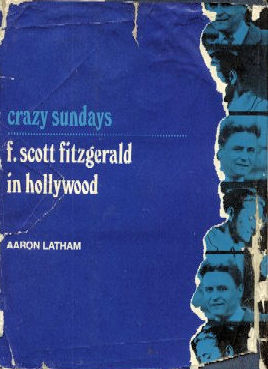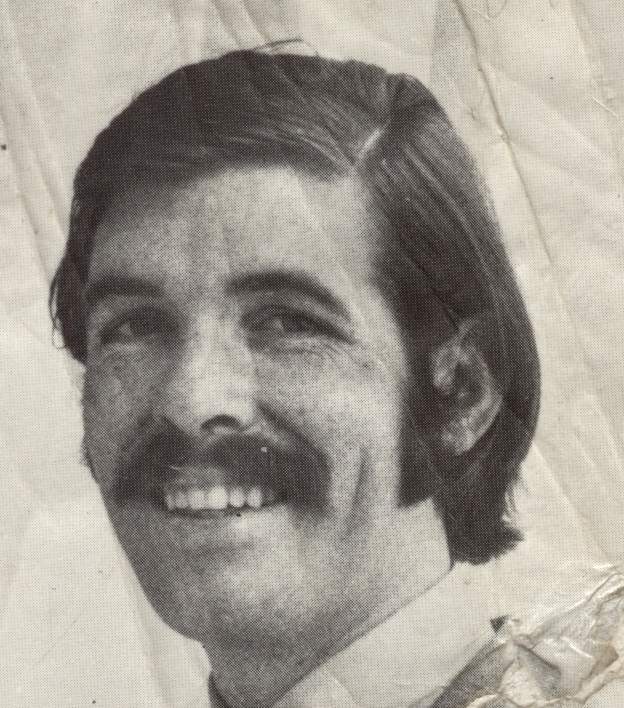
Crazy Sundays: F. Scott Fitzgerald in Hollywood
by Aaron Latham
Epilogue
Here in the figured dark I watch once more There with the curtain rolls a year away A year of years…
—Fitzgerald
Scott sat in the audience. He had been in the audience when the Triangle Club’s Evil Eye played St. Paul in 1916, not up on stage as a chorus girl the way he should have been. And now as the curtain was going up on the forties, he was still there, out front, filling up a red plush seat in some gymnasium of a theatre in Los Angeles. The author had once written in a short story, “We make an agreement with children that they can sit in the audience… but… after they are grown” they must help “to make the play.” Yet Scott had failed in his attempts to make plays and so was still trapped on the child’s side of the footlights. The old dream of love, money, and the stage coming together in an alliance with the writer had passed Fitzgerald by as surely as World War I had passed him by. So, in the audience, Scott watched and listened, just as Amory had, while “the violins swelled and quavered on the last notes, the girl sank to a crumpled butterfly on stage, a great burst of clapping filled the house.”
The girl was Helen Hayes. She no longer remembers what play it was, calling it simply “one of my bigger successes, one of those pompous plays I used to do.” After all the opening night curtain calls and all the applause, the actress crept away to her dressing room where she was mobbed by “a lot of film people, all the celebrities.” It was a long time before the room emptied and the actress was at last left alone with her flowers and her telegrams and the solvent which peeled off the make-up.
“Then I heard this quiet little knock,” Miss Hayes remembers. “I looked up and saw Scott in the doorway with this little blonde beside him. I, of course, flung my arms around him and made a big fuss and we had a happy visit, I thought. I told him how nice it was of him to wait until all of the others had gone so that we could be alone together.”
The next night the audience was just as large and just as enthusiastic, if not quite so distinguished, as the one on opening night. And there were almost as many flowers delivered to Miss Hayes’ dressing room, even a large basket from Fitzgerald. Attached to the bouquet was a note from Scott which began, “Dear Helen, I know you despise me. I shouldn’t have come backstage in that company…”
“That was the last I ever heard from Scott,” the actress remembers.
Not long after, the novelist who had failed in his attempts to break into pictures spent the last evening of his life with a Hollywood gossip columnist at the movies. The feature was titled This Thing Called Love: it had a mechanical plot which revolved about a marriage of convenience. The date was December 20. Leaving the theatre, Fitzgerald staggered, so that Sheilah took his arm. For once, the proud man did not push her away. “I feel awful,” he whispered, “—everything started to go as it did in Schwab’s. I suppose people will think I’m drunk.” They didn’t call the doctor that night because he was coming the next day anyway.
The following afternoon Fitzgerald sat in a chair in the apartment which he shared with Sheilah, passing the time while he waited for the doctor. He was thumbing through an alumni magazine from Princeton, the university which he left without a degree, making notes in the margin on next year’s football team, the squad he hadn’t made. He placed a check beside Bob Sand-bach’s name, remembering the field goal he had missed against Harvard so that the game ended in a 0-0 tie. But against Yale Sandbach had redeemed himself, kicking in three points from the twenty-six-yard line and winning the game for Princeton, 10-7. Scott had listened to the games on the radio. He was glad to see that the kicker would be coming back next year.
Fitzgerald’s mind was on football when his heart stopped. He jumped to his feet, then fell dead. The body was taken to a Los Angeles mortuary where Dorothy Parker came and stood in front of the casket and said the same elegy for Scott which Owl Eyes had said for Gatsby: “Poor son of a bitch.” Twenty-eight years— almost to the day—after he had begun his first drama, The Captured Shadow, on a train running from Newman School to St. Paul for the holidays, his body was loaded onto a railroad car bound for Baltimore. Once again Scott Fitzgerald was going home for Christmas.
***
Tucked in with the author’s notes for his unfinished novel was a short story about dying in Hollywood. The heroine was a young English girl named Pamela who was like Sheilah on the outside but on the inside was pure Scott. In the margin of one of the pages he wrote, “This has emotion—too sentimental but real.” Pamela had come to Hollywood and attached herself to one of the studios much as Fitzgerald had. She wanted to break into the movie business, but something had gone wrong and she had been fired:
She received her salary for some months—Jim saw to that— but she did not set foot on that lot again. Nor any others. She was placed quietly on that list that is not written down but that functions at backgammon games after dinner; or on the way to the races. Men of influence stared at her with interest at restaurants here and there but all their inquiries about her reached the same dead end.
She never gave up during the following months—even long after Becker had lost interest and she was in want, and no longer seen in the places where people go to be looked at. It was not from grief or discouragement but only through commonplace circumstances that in June she died.
When the producer named Jim heard the news, he decided to get out Pam’s screen tests. That was one way of saying good-by.
In the test Pamela was dressed as he had seen her that first night at the dance. She looked very happy and he was glad she had at least that much happiness. The reel of takes from the picture began and ran jerkily with the sound of Bob Griffin’s voice off scene and with prop boys showing the number blocks for the takes. Then Jim started as the next to last one came up, and he saw her turn from the camera and whisper:
“I’d rather die than do it that way.”
The End.
Published as Crazy Sundays: F. Scott Fitzgerald In Hollywood by John Aaron Latham (New York: Viking P, 1971).

